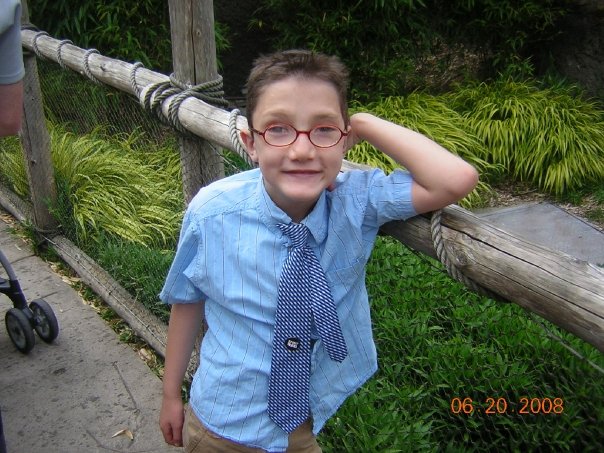Most people know about Down syndrome, and that may be because it is the most common chromosomal abnormality. What about the second most common chromosomal abnormality? This condition is known by many names, but the one that geneticists use is 22q11 deletion or 22q for short. Whereas Down syndrome manifests when there is an extra chromosome in the body, 22q11 is apparent when the q11 portion of the 22nd chromosome is missing. 22q also covers other variations where other areas than 11 are missing. This means that a section of every gene is missing in a person who is affected by 22q. Because of this section that is missing, there are a possible 180 different symptoms that can manifest themselves in the individual. Why does this matter to me? My oldest son was born with 22q11 deletion, and for him that has meant many things, including Autism. Why does this matter to you? Because awareness matters. There may be more people in the world that are affected by this abnormality that do not know about it, and because they do not know about it they may not know what to look for in themselves or their child. There may be issues that could be worked on if they only knew what to look for.

Some of the most common ailments when speaking to other families with 22q, include cleft palates, heart defects, learning delays, autism, possible mental health illness, and issues with immunity, kidneys or growth. This just means that they may have problems eating, speaking clearly, breathing, moving, learning, and generally just staying healthy. My son has a heart defect, speech issues due to a submucous cleft palate, only one kidney, learning issues, and autism. There is so much more to him than these things, and the same is true with any person who has 22q. It is important to realize that each person with this condition is different than the rest.

In a support group for families that have members who have 22q11 deletion I asked what it is that they wished that people knew about the chromosomal abnormality. Here is what was said:
Krystal from Texas, USA: Those that have 22q11 deletion “are diagnosed at all different ages and some never at all! I had another 22q mom question my daughter’s diagnosis because she was not diagnosed till she was 9. It was hurtful and insulting. She was newly diagnosed and we went to a 22q event to meet other 22q families and left feeling like we didn’t belong or deserve to be there because of her ‘late diagnosis’”
Roisin from Ireland states: “22q is like a box of chocolates you never know what you get.” Roisin was diagnosed with 22q at the age of 38.
Beth from the US shares a quote that a friend told her: “Having a chromosome abnormality is like a salad bar…you know you’re getting a salad but everyone puts different things on their salad. Each kid is unique and is following his or her own path.”

With each new diagnosis that a family receives there is a newfound sense of grief that comes along with it. The child is the same child as they were before that test, or before that diagnosis, and yet there is the realization that they will never be the same as other children, or adults. What is important, is to be there for these families as much as you can be, and to be accepting of all abilities because not even every person who has 22q is the same, but they all have something that is theirs that they can bring to the world.
It is Important to raise awareness. As it is sad when a person with 22q is not excepted. Each person no matter what their challenge or diagnosis deserves to be given time. We are all children of God.
It is sad that when someone goes to a group that should be supportive, that they feel that they don’t fit in there as well.
I think this is fantastic!!! Thank you very much for taking the time and effort to bring awareness to everyone who wants to learn. Awareness and knowledge is priceless. Very much appreciated!!
Thanks for taking the time to read my post, and comment on it!
You are doing a great job with your son. You are a good role model for other parents that have children with any kind of special needs!
Thank you for your kind words!